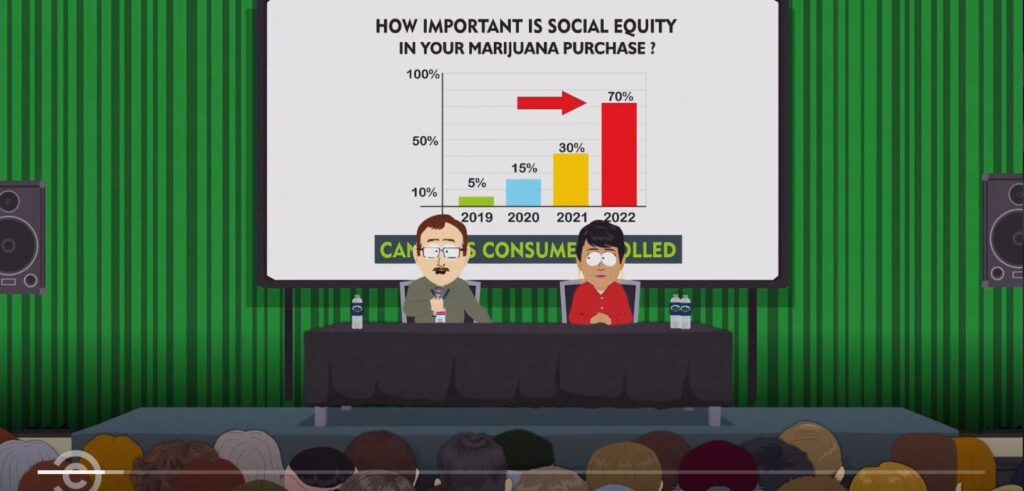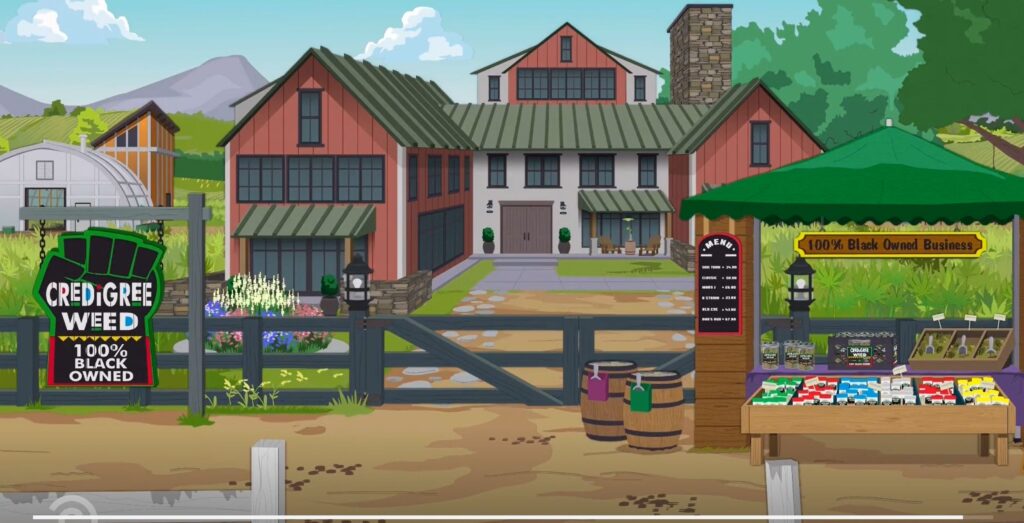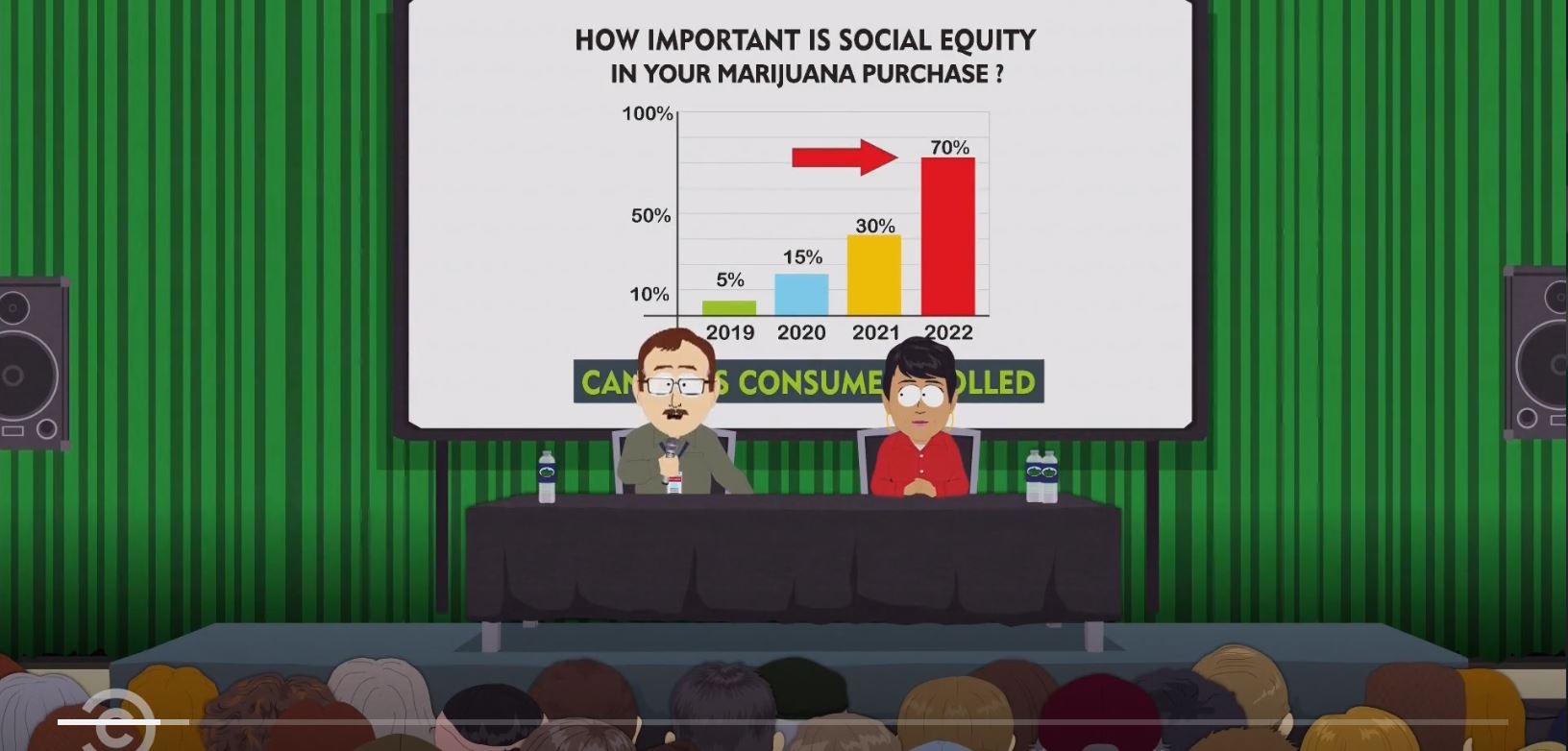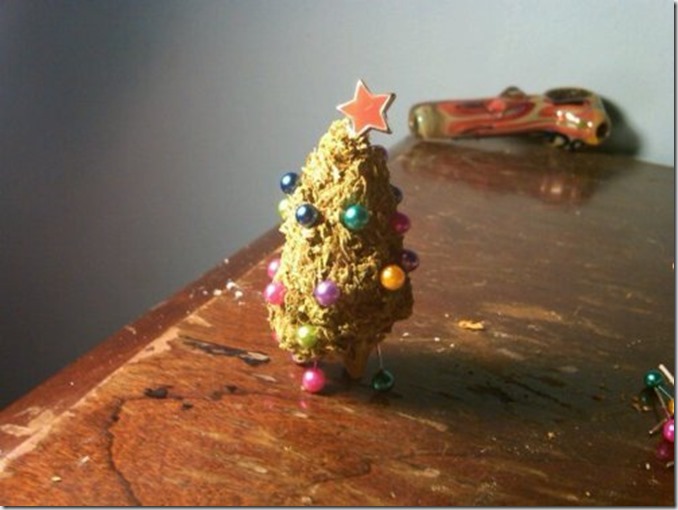By Owen Smith
South Park’s Tegridy Weed has been my favourite cannabis brand since South Park transformed their intro sequence into an advertisement for the fictional cannabis farm founded by Randy Marsh. So when I read that South Park creator Matt Stone had said, “I think we’re really for the first time going to bring Tegridy Weed into real life” I got excited.
Canadian cannabis industry businesses can only watch in awe as this legendary comedy duo uses expert storytelling to build entertaining narratives that showcase the origin stories of their house brand. Comparatively, Canada’s rules on marketing feel like a creative straight jacket. I’m currently taking a cannabis marketing course at Mount Royal University where I’m learning about the strict rules for marketing cannabis brands in Canada. The rules prohibit anything that could appeal to kids, any kind of testimonial, or any character to be involved with a Cannabis brand.
But, do cannabis consumers really want to be dazzled by the magicians bag of hypnotic advertisements or is there something more influential and important that could sway the purchasing decisions of the dedicated cannabisseur?
With their northern neighbours creative hands tied, the Colorado cartoon brings brilliant insights to the developing cannabis industry. The most recent episode Season 25, Episode 2 “The Big Fix” introduces itself with an on stage panel discussing social equity at a cannabis industry expo, a familiar sight to cannabis industry networkers. Tegridy Weed is about to meet social equity.

“We are seeing a Healthy and dramatic spike in consumers who demand that their marijuana be grown by those who understand the fight for social equity”
In Canada, progress on social equity has been abysmal. The challenge of correcting the injustices caused by prohibition has barely been dented. Critics of the current approach to pardons argue that full expungement of records should replace the practice of record suspensions. In order to get a pardon at this point you need to pass through the significant red tape outlined here .
As a measure of the accessibility of this program, in the first two years only 484 pardons have been granted while The government initially estimated that about 10,000 Canadians would be eligible for the “record suspensions.” The Liberal government passed a law in 2019 eliminating the program’s $631 application fee, waiving its five-to-10-year waiting period and speeding up the application process. But it’s not nearly cutting the mustard.
Both in Canada and the United States, the harms of prohibition like arrests, jail time, family disruption and trauma have disproportionately affected black and indigenous people of colour. Removing the penalties that these people have suffered under for activities that are no longer considered criminal is only the start. There needs to be economic reparation for the harms suffered by minority communities under the governments rescinded policy.
Ashley and Michael Athill have been making this issue their passion project while continuing to run their legal cannabis business HRVSTR. As founders of Canada’s first black owned LP and social equity advocates, they attended a recent forum with Health Canada to discuss ideas to help transform Canada’s largely white owned cannabis industry into a more diverse and inclusive one.

The round table discussion with Health Canada included participation from Token (Tolkien?) Naturals and Ika Washington of Diversity Talks [www.diversitytalkspd.com], and Ashley and Michael who presented the Seed Initiative [www.seedinitiative.ca]. The goal of the seed initiative is to enhance, promote and foster economic growth in cannabis among black entrepreneurs while building community and stomping down stigma. Based on the Black Entrepreneurship Program, a federal program that provides funding to black owned businesses, the Seed Initiative will provide cannabis industry expertise, resources and guidance to those seeking to get involved in the many business possibilities that cannabis offers.
So far the initiative has been attracting a lot of interest among black entrepreneurs. Ashley is working toward partnering with existing non-profits to provide seed funding, employment counselling, mentorship and whatever else will be needed to break down the barriers facing BIPOC Canadians with cannabis dreams.
Despite the lull in cannabis events and culture through the pandemic, social equity in cannabis is still a live issue. Now is a great time to get involved. If you have been negatively affected by cannabis prohibition and would like to make your cannabis dream a reality, check out the seed initiative and demand that your cannabis is grown by someone who truly understands the fight for social equity.
Long live Credigree Weed.
Also watch Episode 2 of South Park season 25, it’s hilarious.




